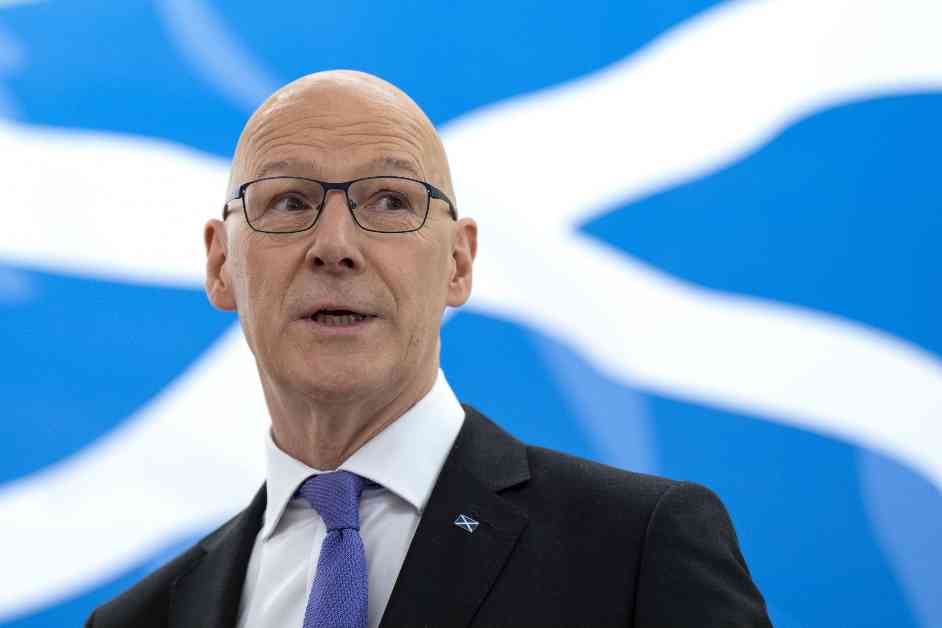Reflecting on the 2014 Referendum
As Scotland approaches the 10-year anniversary of the 2014 independence referendum, John Swinney, the Deputy First Minister of Scotland, has expressed his mixed emotions about the outcome. Despite feeling “heartbroken” by the result that saw Scots vote by 55% to 45% to remain part of the UK, Swinney remains optimistic about the future of Scotland. The referendum sparked a surge in support for the Scottish National Party (SNP), although efforts to secure another referendum have been unsuccessful.
Empowering Scotland’s Future
Looking back on the referendum campaign, Swinney noted the vibrant engagement of the Scottish people in discussions about the country’s future. He emphasized the importance of empowering the people of Scotland to make decisions that will shape the nation’s trajectory. Swinney highlighted the high voter turnout of 85% during the referendum, signaling a strong desire among Scots to have a say in their own governance.
Swinney praised the grassroots campaign groups and individuals who actively participated in the referendum debate, demonstrating a deep-rooted passion for shaping Scotland’s destiny. He acknowledged the energy and enthusiasm that permeated the streets of Scotland during the referendum period, with citizens from all walks of life engaging in lively discussions about the country’s future.
Challenges and Opportunities
While Swinney remains optimistic about Scotland’s future, he also acknowledged the challenges facing the nation. He lamented the impact of decisions made on behalf of Scotland, such as Tory austerity measures, Brexit, and economic setbacks. Swinney pointed to other independent countries that have thrived economically and socially, underscoring the potential benefits of Scotland charting its own course.
Despite facing obstacles, Swinney expressed confidence in Scotland’s ability to overcome challenges with its abundant resources and talented workforce. As the Deputy First Minister, he reiterated his commitment to empowering the people of Scotland and building a prosperous future for all.
The Scottish Tories, however, have criticized Swinney’s focus on independence, urging him to address pressing issues affecting public services and the economy. Party chairman Craig Hoy questioned the SNP’s priorities and accused Swinney of being out of touch with the concerns of Scottish citizens. Hoy emphasized the need for practical solutions to improve services and public finances, rather than pursuing separatist rhetoric.
In response to the criticism, Swinney maintained his belief in the benefits of independence for Scotland. He highlighted the disparities between Scotland and other independent nations in terms of wealth, fairness, and overall well-being. Swinney underscored the negative impact of external decisions on Scotland’s economy and public services, emphasizing the need for greater autonomy to shape the country’s future.
As Scotland prepares to mark a decade since the 2014 referendum, the debate over independence continues to spark passionate discussions and differing viewpoints. Swinney’s optimism for Scotland’s future remains unwavering, despite the challenges and setbacks encountered along the way. The coming years will undoubtedly shape Scotland’s path forward, with the hopes and aspirations of its people at the forefront of the national discourse.
































